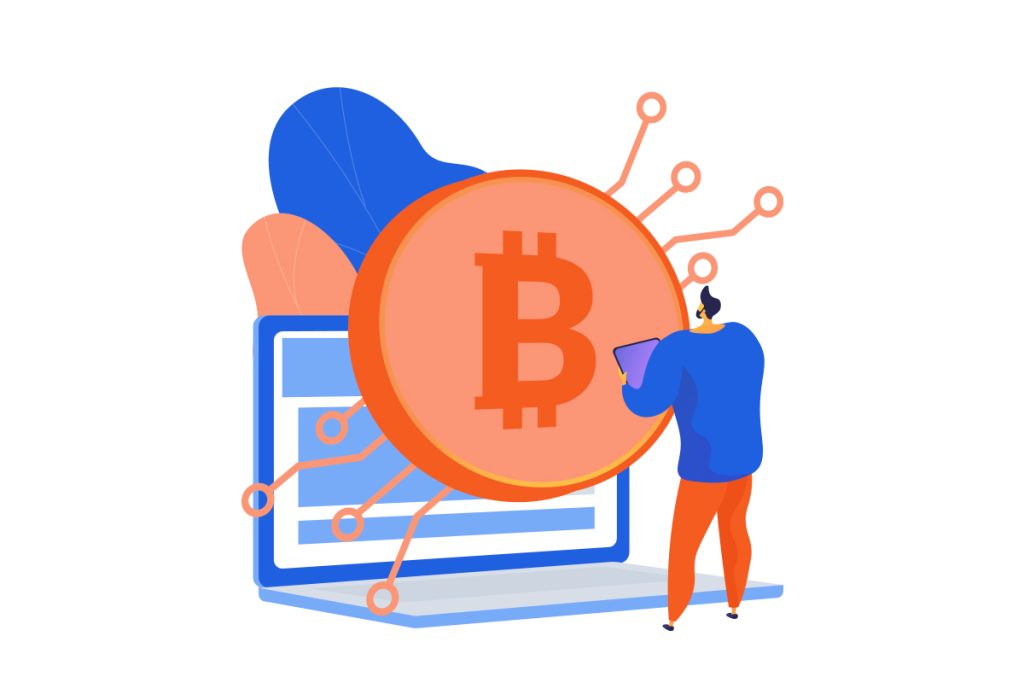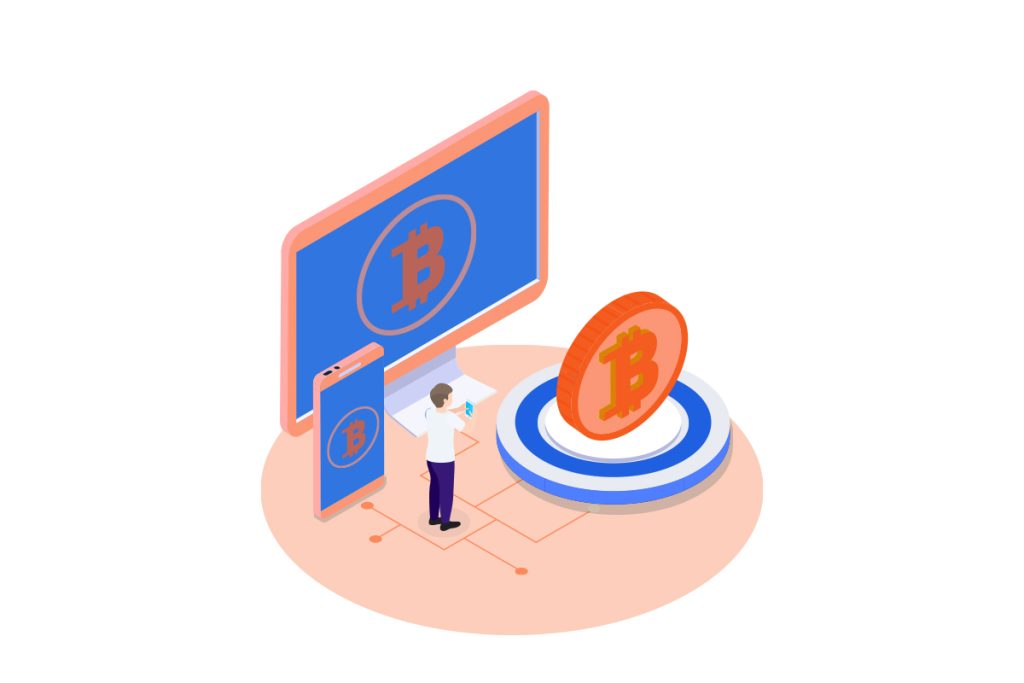Cryptocurrencies have become increasingly popular in recent years with over 1,600 of them as of 2018 and the number keeps rising. This surge has led to a higher demand for blockchain developers, the technology behind cryptocurrencies like Bitcoin. These developers are highly valued, earning an average salary of over $112,000 according to Indeed. There is even a website dedicated solely to cryptocurrency job postings. cryptocurrency in Pakistan, bitcoin in Pakistan, Ethereum coin in Pakistan. The crypto market in Pakistan is expected to expand by 16.04% from 2024 to 2028, reaching a volume of US$35.5 million by 2028.
Cryptocurrency is a digital currency, an alternative form of payment created using encryption algorithms. A cryptocurrency is a coded string of data indicating a currency unit. Encryption technologies indicate that cryptocurrency functions both as currency and virtual accounting systems. You need a cryptocurrency wallet to use cryptocurrencies. The most popular cryptocurrency is Bitcoin which was created in 2009. You can buy cryptocurrency on websites like Coinbase, Bitstamp, or Kraken by using your credit/debit card, bank transfer, or other ways to pay.

Emergence of Cryptocurrency in Pakistan
About 9.0 million people in Pakistan, which is about 4.1% of the total population, have cryptocurrency. Many Pakistanis think cryptocurrencies are the solution to their financial woes. Pakistan is currently facing heavy debts, high inflation, and low foreign reserves. Industry experts criticize Pakistan’s cryptocurrency ban plan, arguing it is not the only solution.
The country is currently reviewing how to create its own digital money, like China and many others. They are also considering improving banking services for people who don’t have much access to them. According to a recent study, Cryptocurrency will make it easier to stop criminal activities like money laundering and terrorism funding. Plus, having its own currency can help the government fight corruption, which is a big problem in Pakistan. Learn more about the Elevate Your International Transactions with These Top 6 Banks in Pakistan
Key Features of cryptocurrencies
Here are the key features of cryptocurrencies:
Decentralization
Cryptography
Blockchain Technology
Limited Supply
Pseudonymity
Digital Wallets
Factors Influencing Cryptocurrency Adoption in Pakistan
Three key factors that fuel crypto value include supply and demand, market perception, and competition. Knowing these things helps you understand why crypto prices fluctuate (go up and down).
Supply and Demand
Beginners often wonder why cryptocurrency prices fluctuate. This question is another way of asking how the value of cryptocurrencies is determined and the answer to this question is supply and demand. Cryptocurrency value is determined by demand and supply, like any other traded goods. When demand exceeds supply, the value goes up. Most cryptocurrencies, like Bitcoin, implement mechanisms to limit supply and prevent inflation. Bitcoin (BTC) has a fixed maximum supply (21 million BTC), after that mining extra more becomes impossible. Demand for crypto rises when more people invest in it, pushing its value up. Conversely, if investors see it as too risky, they may withdraw their investments, reducing the demand and causing the value to drop. So, when the crypto market is down, it is often because external factors like high gas prices and inflation make investors nervous and pull out.
Market Perception
When many people think something is valuable, they are willing to pay more for it. Public perception and awareness of cryptocurrencies greatly influence adoption. Positive media coverage, educational initiatives, and awareness campaigns can improve understanding and acceptance of cryptocurrencies among the general population. For example, when lots of people believe in cryptocurrency and see it as valuable, its price goes up. But if something bad happens like a security breach or negative news, people lose faith in it, and its value drops. In November 2021, the launch of the first Bitcoin exchange-traded fund led to Bitcoin reaching its all-time high of $65,000.
Competition in the Crypto Market
Cryptocurrencies are essentially variations of the same underlying technology, and every crypto project is competing to see which functionalities are measured as the most useful. As of August 2022, there are well over 20,000 cryptocurrencies on the market. Starting a new cryptocurrency isn’t too hard but not all of them become popular. Sometimes, a new one comes along and can gain momentum, making other coins lose their value.
Challenge, Controversies, and State Bank of Pakistan
According to a recent study, there are different legislative and policy issues along with the consent of governments of all provinces of Pakistan that stated cryptocurrency is illegal and banned. The State Bank in 2018 guided people to refrain from indulging in some activities that are related to mining, exchanging, transferring value, trading, promoting, and investing in Virtual Currencies (like Bitcoin).
State Bank also shares some risks associated with indulging in activities, listed as
- Create advanced list items
- If a cryptocurrency exchange were to fail or shut down, investors could lose all the money they had invested in that exchange.
- Cryptocurrency exchanges and wallets have been targets for hackers, resulting in security breaches that have caused investors to lose large amounts of money.
Waqar Zaka filed a petition in the Sindh High Court against the State Bank of Pakistan’s notification about the restriction of cryptocurrency use. However, Waqar Zaka said that the SBP does not have the proper authority to ban cryptocurrency mining or trading as it is not stated in Pakistani laws. He also pointed out that the Pakistan Parliament has not approved any law regarding banning cryptocurrency mining or trading and that’s why the SBP’s notice is illegal.
Waqar Zaka complained that the Cyber Crime Wing of the FIA has been unfairly arresting crypto miners and confiscating their Bitcoins which are worth millions. He mentioned that the FIA officers filed a complaint against the miners even though there are no specific laws about cryptocurrency in Pakistan. In 2020, it was decided that cryptocurrency is neither allowed nor banned in Pakistan.
See more: How to File a Complaint Against Cyber Crime in Pakistan

Status of Cryptocurrency in Pakistan
Cryptocurrencies like Bitcoin are not officially controlled in Pakistan, but they are not illegal either. As of January 16, 2021, the State Bank of Pakistan has not permitted anyone to buy, sell, or invest in virtual currencies, coins, or tokens. The Cyber Crime Wing of the Federal Investigation Agency (FIA) has arrested several people for mining Bitcoin and other cryptocurrencies. These arrests happened due to money laundering charges. Cryptocurrencies are not recognized as legal tender in Pakistan, government warns people about the dangers linked to them, such as cyberattacks, losing money, and illegal money activities.
Even though some people argue about virtual currency, popular bloggers and influencers from Pakistan openly trade Bitcoin. They often share posts supporting rules for cryptocurrencies on social media. In December 2020, the government of Khyber Pakhtunkhwa province made history by being the first in Pakistan to approve cryptocurrency legalization.
Perspectives on the Future of Bitcoin at Pakistan Level
Considering the varied opinions expressed in different interviews, it is evident that there is a divide in Pakistan about the acceptance and legality of cryptocurrency. Some people argue that cryptocurrency line up with the Islamic finance principles as it meets the standards of being a valuable medium of exchange, a unit of account and a measure of value. Others people contend that because of its uncertain nature and potential for its misuse make it incompatible with Islamic principles. Revenue in the cryptocurrency market is expected to grow annually at a rate of 16.04% from 2024 to 2028, reaching a total of US$35.5 million by 2028. The average revenue per user is estimated to be US$4.7 in 2024. The number of users in the Cryptocurrencies market is projected to reach 5.67 million by 2028.
Potential Benefits of Bitcoins may include:
| Financial Inclusion | For the unbanked population of Pakistan, Bitcoin could offer financial inclusion. Without traditional bank accounts, Bitcoin allows for storing value and making transactions electronically. |
| Remittances | Millions of Pakistani workers send money back home. Bitcoin transactions can potentially be faster, cheaper and more transparent than traditional money transfer services. |
| Store of Value | Bitcoin’s decentralized nature could act as a hedge against inflation, a concern for many Pakistanis. |
Final Words
In Pakistan, cryptocurrency exists in a legal grey area. Though not explicitly banned, the State Bank discourages its use. This, along with concerns about volatility and money laundering, creates uncertainty for potential investors. Despite these challenges, the future of Bitcoin in Pakistan might involve regulation, paving the way for safer and more widespread adoption. In this research article, our Tashheer’s research team compiled all the factors that helps in the emergence of Cryptocurrency in Pakistan.




